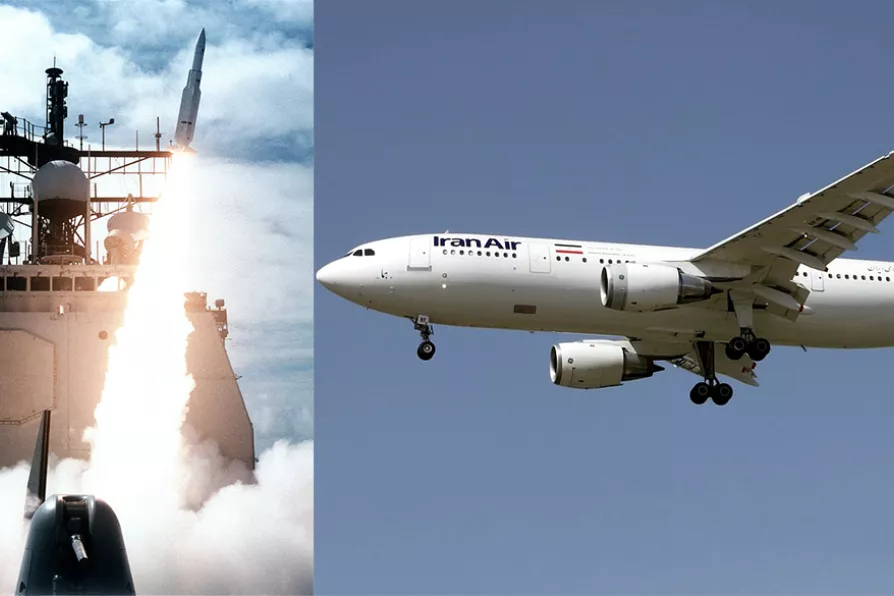As the RMT Health and Safety Conference takes place, the union is calling for urgent action on crisis of work-related stress, understaffing and the growing threat of workplace assaults. RMT leader EDDIE DEMPSEY explains
Remember when the US shot down Iran’s airliner?
In 1988 it was the US that targeted a civilian plane – and immediately tried to cover it up, with the full support of Britain. Using freedom of information requests, SOLOMON HUGHES exposes the scandal

 Left: A missile departs the forward launcher of Vincennes during a 1987 exercise. The same launcher was used in Flight 655's downing. Right: An Airbus A300 similar to the aircraft involved in the incident
Left: A missile departs the forward launcher of Vincennes during a 1987 exercise. The same launcher was used in Flight 655's downing. Right: An Airbus A300 similar to the aircraft involved in the incident
THE Iranian government is — rightly — facing fury from Iranian people over its armed forces shooting down a Ukrainian civilian airliner, killing 176 people.
Iran’s government is also rightly facing pressure to be open about how the Revolutionary Guard could make such a terrible mistake.
But how did London and Washington react when the US shot down an Iranian airliner in a similar incident in 1988? According to secret documents that I obtained by a freedom of information request, they tried to cover it up.
Similar stories

The British government won’t confirm wide reports it has withheld intelligence sharing with the US over fears Trump’s attacks on boats near Venezuela are illegal, writes LINDA PENTZ GUNTER














